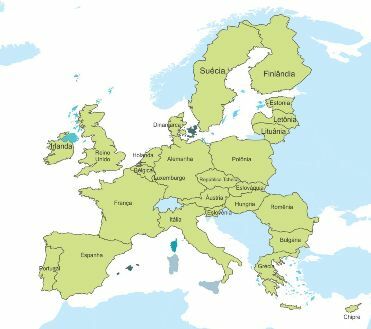In the international debate in recent decades on social and environmental issues, one of the most recurrent themes refers to agriculture. The questions that guide these debates, within symposia, meetings, commissions, surveys, among others, official and unofficial, revolve a lot around the concept of sustainability, consequently, an agriculture sustainable.
The so-called sustainable agriculture, idealized and so acclaimed in various intellectual, scientific and political circles, would be a type of agriculture that could conserve natural resources and provide healthy (or healthier) products, without compromising the technological levels already achieved of food safety of the individuals. This concept results from emerging social pressures for an agriculture that does not harm the environment, the economy, health, in short, society as a whole.
In this sense, sustainable agriculture acquires an extremely relevant role in an international context, since, despite its ten thousand years, the agriculture remains the human activity that most closely relates society to nature, and in the opposite sense, but present in the relationship, nature and society.
Within this framework, in which food conditions, health, environment, economy are all circumscribed, even taking into account the working conditions in the field, the inherent relationships of this process. And, furthermore, in contrast to other productive processes, human intervention in agriculture is not carried out with the primary purpose of transforming the raw material, in the first instance. In it, human work aims to regulate, control, or even subject to the environmental conditions under which plants and animals grow and grow. reproduce, because in this process, there is a moment of transformation that takes place through organic-natural dynamics, and not through the application of the work human.
Therefore, we could suppose in the man/nature relationship, another aspect, nature/man, where nature could exert some kind of pressure on men, for example, a farmer who finds it difficult to open and turn the soil in order to expose it to sunlight, uses an instrument that does not matches the effort required by that terrain, consequently your equipment wears out faster and your work is not done with the dexterity that would. Seen from this perspective, either the farmer can use other equipment, or even buy other machines and acquire new techniques in dealing with his property.
This point of view reveals the force of nature acting against man, who is obliged to adapt, transform, and control their ideas and skills, techniques and instruments in favor of an intended relative control over land and nature.
Do not stop now... There's more after the advertising ;)
Per Amilson Barbosa
Columnist Brazil School
Would you like to reference this text in a school or academic work? Look:
DANTAS, James. "Sustainable Agriculture, Man and the Environment"; Brazil School. Available in: https://brasilescola.uol.com.br/geografia/agricultura-sustentavel-homem-meio-ambiente.htm. Accessed on June 28, 2021.


